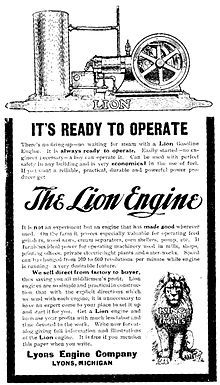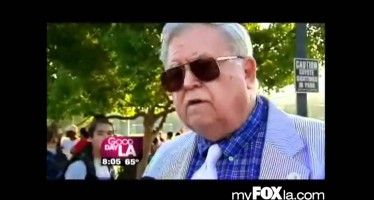CARB versus the Carburetor
JAN. 31, 2012
By KATY GRIMES
The carburetor is losing the battle in California. Instead of acknowledging that auto designers and manufacturers are continually refining the internal combustion engine for efficiency, global warming activists want to scrap the engine.
In an attempt to rid the world of global warming, on Friday the California Air Resources Board announced new rules adding more regulations to require auto manufacturers to offer even more zero-, or very low-emission cars such as battery electric, hydrogen fuel cell and plug-in hybrid vehicles in California, by 2018.
The board also increased future emission standards for all new cars, making them the most stringent in the nation. In an attempt to remove smog-forming pollutants from new vehicles by 75 percent, and reduce total auto emissions by 30 percent, one-in-seven cars sold in California must be ultra-clean, and low- or no-emission by 2025. California is now dictating standards to the entire auto manufacturing industry.
According to the California Air Resources Board, new regulations requiring ultra-clean cars sold in California “will save drivers money on fuel, create jobs, cut smog and greenhouse gases, make California a world leader in clean car technology.” They don’t say how.
But given CARB’s history, there has been no discussion or even acknowledgment of the free market. Instead, auto makers are mandated to build products that consumers are not mandated to buy, the Alliance of Automobile Manufacturers reported after CARB’s announcement. “Mandates create a disconnect in the marketplace,” it said.
The California New Car Dealers Association and other auto-related industry groups representing businesses that sell cars reported that CARB overestimated consumer demand for electric vehicles and other so-called “zero-emission vehicles.”
Auto dealers and industry groups estimate that $3,200 would be added to the average price of a car or light truck because of the new regulations. Consumers have been slow to purchase the expensive, clean cars.
“We expect to go beyond that with other incentives we are hoping to be able to offer in terms of direct incentives to people who buy these cars (such as) rebates and credits,” CARB Chairwoman Mary Nichols said during a phone conference after the announcement.
More Regulations
CARB voted on the rules following a two-day hearing of the board that included presentations and testimony from automakers, environmentalists, politicians and consumer advocates. The rules will affect vehicles starting in the 2017 model year.
The rules are part of California’s very aggressive plan to reduce climate warming emissions by 80 percent by 2050.
“That’s actually a relatively modest goal, but that’s all that we’re mandating,” Nichols said during the conference.
But many in the auto industry say that because California is the largest car market in the U.S., CARB is dictating to the rest of the country by being able to set policy, independent of federal rules and regulations.
Few news stories report that new “clean” cars make up well below 1 percent of the entire car market. Because of the less-than-enthusiastic response from consumers, California was forced to scale back its Zero Emission Vehicle goals in the past because vehicle technology lagged state officials’ unrealistic plan for getting more clean cars on the road.
But those days are over.
California New Car Dealers Association said that demand for these types of vehicles has been overestimated by CARB. It appears they are now being ignored. Instead, Nichols said that car manufacturers were in favor of the new rulings. “Probably the most heartening aspect of this whole rulemaking was the level of cooperation that we received from the industry. Overall, the degree of support for the package was just extraordinary,” Nichols said.
The cost to drivers outside of California is rarely addressed. Eleven unelected CARB members are dictating what kind of cars Americans in the other 49 states drive. The premium cost of those cars defies America’s free market system.
There is talk outside California on the auto news sites of Commerce Clause violations by CARB, and the potential for lawsuits filed outside of California in Federal District courts. Given that CARB was established because Southern California has a unique ecosystem and unique air quality problems, imposing uniform national emissions standards outside of California is dramatically impacting the entire country.
Who Is CARB?
Five of the 11 California Air Resources Board members are required to come from regional air quality boards within California. Four of the remaining six are required to have some kind of related expertise. Currently, only two of the board members have any private-sector experience and only one comes from industry.
One of the CARB board members, John Balmes, M.D., is an environmental medicine specialist, and researches the effects of pollution on the lungs. The legal expert, Dorene D’Adamo, is a Democratic congressional aide for Congressman Dennis Cardoza, and specializes in environmental law. The automotive expert, Daniel Sperling, has a background in environmental engineering, alternative energy and the environmental aspects of transportation.
The governor appoints members of CARB with consent of the Senate. And the deck is clearly stacked.
Because fuel-efficient cars generate less tax revenue for governments, there have already been discussions in California about taxing cars per mile driven, and installing devices that report where drivers travel.
CARB’s answer to the decreased tax revenue is to force auto manufacturers to create more of the “clean” cars, which will eventually be mandated to drivers by California officials. The cars cost so much more than consumers are currently paying for autos that increased revenue from car sales taxes will more than offset any revenue declines from lower gas taxes.
What would Milton Friedman say?
Global ‘Warming’?
Last week the Wall Street Journal ran an article, “No Need to Panic About Global Warming,” signed by 16 notable climate scientists.
“There’s no compelling scientific argument for drastic action to ‘decarbonize’ the world’s economy,” the scientists wrote. “In fact, a large and growing number of distinguished scientists and engineers do not agree that drastic actions on global warming are needed. The reason is a collection of stubborn scientific facts.
“Perhaps the most inconvenient fact is the lack of global warming for well over 10 years now. This is known to the warming establishment, as one can see from the 2009 ‘Climategate’ email of climate scientist Kevin Trenberth: ‘The fact is that we can’t account for the lack of warming at the moment and it is a travesty that we can’t.’
“The lack of warming for more than a decade—indeed, the smaller-than-predicted warming over the 22 years since the U.N.’s Intergovernmental Panel on Climate Change (IPCC) began issuing projections—suggests that computer models have greatly exaggerated how much warming additional CO2 can cause.”
Climate Lysenkoism
The scientists reported that, while the number of publicly dissenting scientists is growing, many young scientists say that while they also have serious doubts about the global-warming message, they are afraid to speak up for fear of not being promoted or terminated.
“This is not the way science is supposed to work, but we have seen it before—for example, in the frightening period when Trofim Lysenko hijacked biology in the Soviet Union.,” the scientists wrote. “Soviet biologists who revealed that they believed in genes, which Lysenko maintained were a bourgeois fiction, were fired from their jobs. Many were sent to the gulag and some were condemned to death.”
The scientists say that the entire reason for the “incontrovertible” global warming mantra is about money — “Follow the money.”
That’s certainly the case in California, where the CARB bureaucracy provides fat salaries and fatter pensions to “climate” bureaucrats, as well as tax-funded disasters such as the now-bankrupt Solyndra.
Related Articles
Mexico to join shale/fracking revolution; will media keep CA out?
This spring, I did a two-week series for Cal Watchdog on the many nations around the world that are pursuing
Earmark $$$ Railroads Taxpayers
MARCH 14, 2011 On the corner of 13th and R Streets in Sacramento sits a charming home built in the
Fullerton police chief doesn’t think verdict vindicated lethal cop
In the aftermath of the Kelly Thomas verdict, it’s been depressing to read the comment sections of Cal Watchdog, blogs,





